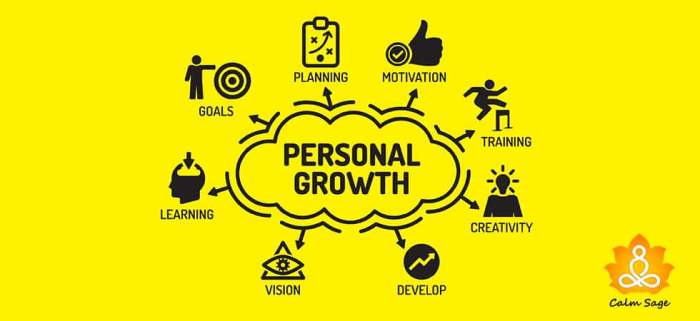Self-Improvement Tips sets the stage for this enthralling narrative, offering readers a glimpse into a story that is rich in detail with american high school hip style and brimming with originality from the outset.
Get ready to dive into the world of self-improvement like never before, as we explore practical strategies and insights to help you become the best version of yourself.
Introduction to Self-Improvement Tips
Self-improvement is the process of enhancing oneself mentally, emotionally, physically, or spiritually in order to achieve personal growth and development. It involves setting goals, learning new skills, and adopting positive habits to become the best version of oneself.Self-improvement is crucial for personal growth as it allows individuals to overcome challenges, build self-confidence, and reach their full potential. By continuously working on improving themselves, people can become more resilient, adaptable, and successful in various aspects of their lives.
Areas where self-improvement can be beneficial:
- Improving communication skills: Enhancing how you communicate with others can lead to better relationships, increased career opportunities, and improved self-expression.
- Developing time management skills: Learning to prioritize tasks and manage time efficiently can help reduce stress, increase productivity, and achieve goals effectively.
- Building self-confidence: Working on your self-esteem and self-belief can boost your overall well-being, help you overcome self-doubt, and take on new challenges with courage.
- Embracing a healthy lifestyle: Making positive changes to your diet, exercise routine, and sleep habits can improve your physical health, mental clarity, and overall quality of life.
Setting Goals for Self-Improvement
Setting goals is crucial for self-improvement as it provides direction and motivation to work towards a better version of oneself. One effective way to set goals is by following the SMART criteria, which stands for Specific, Measurable, Achievable, Relevant, and Time-bound.
Breaking Down Big Goals, Self-Improvement Tips
Breaking down big goals into smaller, manageable steps is essential to prevent feeling overwhelmed and maintain progress. By dividing a large goal into smaller tasks, it becomes easier to track progress and stay motivated along the way.
- Start by outlining the main objective of your goal and then list down smaller tasks that need to be completed to achieve it.
- Assign deadlines to each sub-task to create a sense of urgency and accountability.
- Celebrate small victories along the way to stay motivated and reinforce positive habits.
Impact of Realistic Goals
Setting realistic goals is key to self-improvement because it allows for steady progress and prevents discouragement. Unrealistic goals can lead to frustration and demotivation, whereas achievable goals provide a sense of accomplishment and boost confidence.
Remember, progress is progress no matter how small. Stay consistent and focused on your goals to see positive changes in your life.
Developing Healthy Habits
Developing healthy habits is crucial for self-improvement as it helps in maintaining physical, mental, and emotional well-being. Consistency plays a key role in reinforcing these habits and making them a natural part of our daily routine.
Examples of Healthy Habits
- Eating a balanced diet rich in fruits, vegetables, and whole grains
- Exercising regularly to stay active and maintain physical fitness
- Getting an adequate amount of sleep each night for rest and recovery
- Practicing mindfulness and meditation to reduce stress and improve mental clarity
Role of Consistency
Consistency is essential in maintaining healthy habits because it helps to reinforce the behavior and make it a natural part of our daily routine. By consistently practicing these habits, they become ingrained in our lifestyle and contribute to long-term self-improvement.
Strategies for Overcoming Challenges
- Start small and gradually build up: Breaking down the habit into smaller, manageable steps can make it easier to stay consistent.
- Set specific goals and track progress: Setting clear and measurable goals can help in monitoring progress and staying motivated.
- Find an accountability partner: Sharing your goals with a friend or family member can provide support and encouragement to stay on track.
- Reward yourself for progress: Celebrating small victories along the way can reinforce the habit and make it more enjoyable.
Time Management Techniques

Effective time management is crucial for self-improvement as it allows individuals to maximize productivity, reduce stress, and achieve their goals efficiently. By managing time wisely, one can create a balanced lifestyle, prioritize tasks, and make time for personal growth.
Productivity Tips for Effective Time Management
- Avoid multitasking and focus on one task at a time to increase efficiency.
- Use tools like calendars, planners, or apps to schedule tasks and set reminders.
- Break down large tasks into smaller, manageable steps to avoid feeling overwhelmed.
- Set specific goals and deadlines to stay motivated and track progress.
- Eliminate distractions such as social media or unnecessary meetings to maintain focus.
Benefits of Prioritizing Tasks for Personal Growth
- Prioritizing tasks helps individuals identify and focus on the most important activities, leading to better decision-making.
- It allows for better time allocation, ensuring that essential tasks are completed before less critical ones.
- By prioritizing tasks, individuals can achieve a sense of accomplishment and boost their confidence in their abilities.
- It promotes self-discipline and time awareness, leading to improved efficiency and effectiveness in all areas of life.
Building Self-Confidence

Building self-confidence is a crucial aspect of self-improvement. When you believe in yourself and your abilities, you are more likely to take risks, set ambitious goals, and work towards achieving them. Self-confidence acts as a driving force that propels you forward in your personal growth journey.
Strategies for Boosting Self-Confidence
- Practice self-care: Taking care of your physical and mental well-being can have a significant impact on your self-confidence. Exercise regularly, eat nutritious foods, and engage in activities that bring you joy.
- Affirmations: Positive affirmations can help rewire your mindset and boost your self-esteem. Start your day by reciting affirmations that highlight your strengths and capabilities.
- Set achievable goals: Break down your larger goals into smaller, manageable tasks. Celebrate your accomplishments along the way to build confidence in your abilities.
- Step out of your comfort zone: Challenge yourself to try new things and embrace uncertainty. Each time you step out of your comfort zone and succeed, your self-confidence grows.
Impact of Increased Self-Confidence on Personal Development
Increased self-confidence can lead to greater resilience in the face of challenges. When you believe in yourself, you are more likely to persevere through setbacks and continue working towards your goals.
Self-confident individuals are more likely to take on leadership roles and inspire others. Their belief in themselves radiates confidence and motivates those around them to strive for excellence.